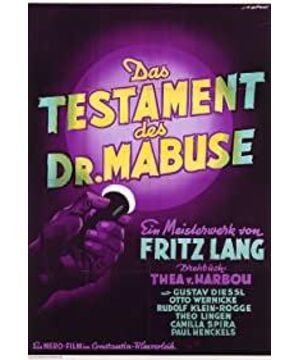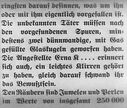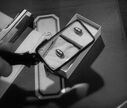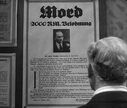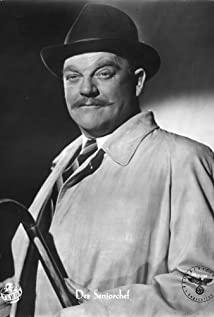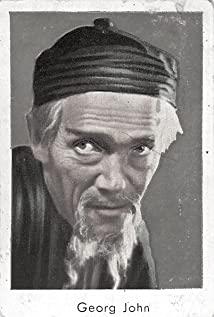A never-ending realm of crime, destructive willpower leading to doom, a depraved mixture of hypnosis and telepathy... Fritz Lang is known for his unexpectedly entertaining, expressionist crime thriller Mabuse The Doctor's Will (1933) struck me. A man skilled in disguise and hypnotism, Dr. Mabuse directs a gang to carry out various criminal activities in Berlin, including murder, robbery, forgery, fraud, and more. His madness and deformity reminds me of a similar character in The Dark Knight (2008). The clown, insidious and cunning, recruits schizophrenics to massacre, causing chaos in Gotham City at will. However, it was Joker's wounded life experiences and broken family that led to his hostility and belief in anarchism. Dr. Mabusei is portrayed as possessing this uniquely divine chaotic idealism that stems from a malevolent and depraved nature. His characteristics and actions are brought to an impersonal level, "larger than life, and it erases the personality traits of his opponent" (Butler, 484). Lang Xianping effectively uses the concept of deformity and metaphors elements such as demonic possession and religious fanaticism in the story to depict the turbulent conditions of the young post-Weimar society in "The Will of Dr. Mabusei."
The evil that Mabuse creates comes not only from his criminal behavior, but more from his metaphysical forms and external deformities, pervading the plot with immaterial stress and unease. Being physically contained in a mental asylum does not limit him from appearing as a supernatural figure, possessed and haunted like demons. With Professor Baum in particular, we can see that Mabuse constantly "appears before him in deformed form", "incorporates Baum on the screen", "exercises power over him" (Butler, 490). Lang Xianping achieves Mabuse's diabolical scene by "slicing him into discrete visual and auditory images, which occasionally meet but never yield a unified subject or object" (Butler, 487), a cunning .
Professor Baum, a therapist, has been studying Mabusei's will, a document outlining criminal activity, for a decade. The process is actually Baum's own spiritual journey, allowing Dr. Mabusei's mad idealism to gradually take over. In this way, Mabuse spreads his eccentricities widely and embeds them in the hearts of followers, which is also "demon possession".
Ultimately, Mabuse's metaphysical form activates the "ataractic or incendiary" of others, both on and off the screen (10). The real cause of this "evil" possession is the fragility of society, the spiritual crisis and the decline of faith in science, all of which occurred in Germany during the Weimar Republic. Lang and Jacques are acutely aware of this and hope for some extreme transformation and a "superman" to save Germany's spirit.
If Mabusei's deformity brought limited terror, the underlying metaphor of religious fanaticism exacerbated this terror, elevating his deformed image to omnipotence. Technically, Dr. Mabuse can be read as a religion, not a freak. This religion played a role in the execution of the plans of Mabuse's criminal gangs, and it still functions after Mabuse's death, with staunch descendants and admirers obeying the creed and striving to realize the radical idealism of the criminal empire. In particular, Lang Xianping presents Mabuse's death in Nirvana, supposedly a god-like figure. When Baum fled after the conspiracy was uncovered, Mabuse reappeared above the vehicle, looking at Baum and gesturing, assembling to guide him away. Notably, Baum sees these actions of the ghost as oracles rather than instructions. He considered himself an agent of Mabuse, a missionary or pope, who specialized in the administration of crime. This religious metaphor expands on Mabuse's impression of omnipotence and omnipresence when Lohmann admits defeat but senses the contingency of events "beyond the mundane confines of detective work" (Butler, 488).
How Mabuse was promoted as "a realistic description of the unique problems of the time...a true representation" (Koenig-Woodyard, 11), resonates with "contemporary audiences' anxieties and fantasies of omnipotence, which and fantasies are sparked by their generally perceived loss of control over their lives. Mabuse, incarnated as reckless individualism, offers an unconscious wish-fulfillment to a public dreaming of regaining control of their destiny" (Butler, 482).
Deformities are defined within social boundaries. When behaviors and appearances transcend the norms that are cultivated and produced (Kalat, 10), abnormal forms stimulate fear and anxiety in society. I think Lang Xianping's metaphors for demonic possession and religious fanaticism succeeded in reinforcing the effect of the deformity, bringing out the fragile and volatile state of Weimar society in the film "The Will of Dr. Mabuse".
View more about The Testament of Dr. Mabuse reviews


